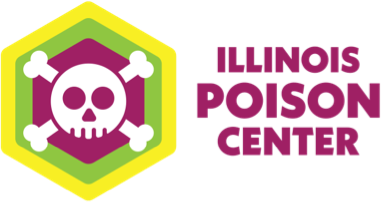Holiday Hazards
It’s easy to overlook potential hazards in your home during the busy holiday season. Unintentional poisonings are more likely when people are preoccupied. To ensure your holiday season is safe and merry, keep an eye on these items:
Food
Foodborne illness is common during the holidays. You can get sick after eating food not cooked thoroughly or stored properly. For more details, see our blog post “Lose Harmful Bacteria—Not Your Appetite—This Holiday Season.”
Alcohol
Unsupervised children may drink unfinished alcoholic beverages. Alcohol can be very dangerous for small children and pets. For example, 3 ounces of hard liquor is potentially fatal to a child weighing 25 pounds.
The symptoms of an alcohol overdose may be mild, such as dizziness and nausea. Symptoms can lead to serious complications, such as vomiting, drowsiness, difficulty breathing, coma and death. Alcohol intoxication can also lower children’s blood sugar to a dangerous level.
Toys and Gifts
Whatever your holiday tradition, care must be taken with small toys and gifts with young children. Small toys, dreidels and other festive objects can be choking hazards for young children. Many toys and cards contain small button batteries which can be especially dangerous to toddlers two years old and under.
Christmas Decorations
- Ornaments and other decorations can be a choking hazard. Large or sharp items can cause injury to the esophagus, stomach or intestines.
- Fake snow from a pressurized container can injure the eye if sprayed directly into the eye. Follow the warning labels on the container.
- Fireplace powders and logs that burn different colors contain heavy metals, such as lead, copper, barium and selenium. Ingesting heavy metals can cause intense stomach and intestinal upset, along with other harmful symptoms. Call IPC right away if these metals are ingested.
- Solid wax candles are considered non-poisonous. However, swallowing a large amount of wax may cause diarrhea. Liquid fuels in glass candle lamps can be very dangerous. Candle lamps should be kept well out of children’s reach.
Christmas Trees and Other Plants
IPC recommends labeling or keeping a record of all the plants in your home.
Christmas trees: Evergreens, such as balsams, cedar, fir, juniper and pine, are safe. Poisoning is unlikely if only a few needles are swallowed. Call IPC if someone ingests a large amount of needles.
These non-toxic holiday plants are safe for your home:
- Bayberry
- Boxberry
- Christmas begonia
- Christmas cactus
- Christmas dagger fern
- Christmas flower
- Christmas kalanchoe
- Christmas pride
- Poinsettia
- Winter begonia
Consider avoiding these more toxic holiday plants (plants with moderate to major toxicity):
- Amaryllis
- Azalea
- Christmas berry
- Christmas cherry
- Christmas rose
- Chrysanthemum
- Holly
- Jerusalem cherry
- Rhododendron
- Winter cherry
IPC is here for you. Call us at 1-800-222-1222 if someone has been exposed to a potentially harmful/toxic substance, even if no symptoms are present.
